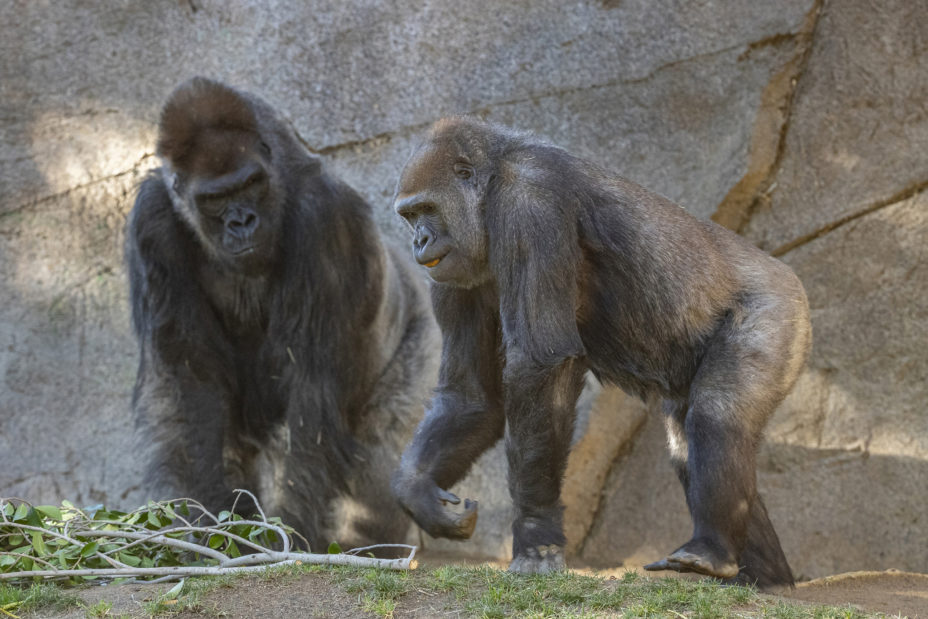San Diego Zoo Safari Park Gorillas Recovering After SARS-CoV-2 Diagnosis
The gorilla troop at the San Diego Zoo Safari Park is recovering following the diagnosis of SARS-CoV-2, the virus that causes COVID-19, in several troop members earlier this month. San Diego Zoo Global is relieved to announce that the eight-member troop is eating, drinking, interacting and on their way to a full recovery, thanks to the incredible work of wildlife care professionals, the veterinary team, and collaborations with a wide array of colleagues and partners who ensured that the highest standard of care was given to the affected gorillas.

The conservation organization joined forces with many local, state and national leaders in the medical, scientific, zoological and public health communities. In addition to providing the best care possible for the gorilla troop, this ongoing teamwork could contribute to a deeper understanding of the impacts of this virus on animals and people worldwide.
These colleagues include professionals from San Diego County Health and Human Services Agency, UC San Diego Health, Rady Children’s Hospital-San Diego, the Scripps Research Institute, California Animal Health and Food Safety Laboratory System, California Department of Food and Agriculture, California Department of Public Health, California Department of Fish and Wildlife, U.S. Department of Agriculture National Veterinary Services Laboratories, USDA Animal and Plant Health Inspection Service, Centers for Disease Control and Prevention, Food and Drug Administration Center for Veterinary Medicine, The Great Ape Heart Project based at Zoo Atlanta and Chicago Zoological Society Radiology Consulting Service.
Despite team members going above and beyond all recommended biosecurity precautions, several members of the Safari Park gorilla troop tested positive for the virus on January 11. The troop was infected with the B.1.429 lineage of the coronavirus, which has been increasingly identified in California and may be more contagious than other strains. The troop has remained under close observation since the diagnosis, when some gorillas showed symptoms including mild coughing, congestion, nasal discharge and intermittent lethargy.
Due to advanced age, symptoms including cough and lethargy, and a concern for underlying medical conditions, the silverback, Winston, underwent a diagnostic examination under anesthesia. Veterinarians confirmed pneumonia and heart disease. Following consultation with specialists, treatment was initiated, including heart medications, antibiotics and monoclonal antibody therapy. The monoclonal antibody therapy originated from a supply that was not permitted for human use. Treatment with these synthetic versions of the body’s natural defenses is thought to be effective in diminishing effects from the virus. The veterinary team who treated Winston believe the antibodies may have contributed to his ability to overcome the virus.
The network of collaborators has also provided San Diego Zoo Global veterinarians with a limited supply of a recombinant purified spike protein vaccine, intended for use in protecting animals against SARS-CoV-2. The vaccine doses originated from a supply strictly intended for nonhuman use. San Diego Zoo Global teams have already begun identifying animal candidates for vaccination at the San Diego Zoo and San Diego Zoo Safari Park.
Category: Animals, Local News, Nonprofit







